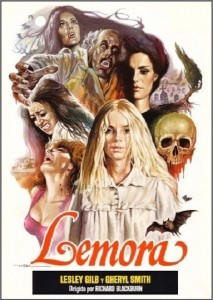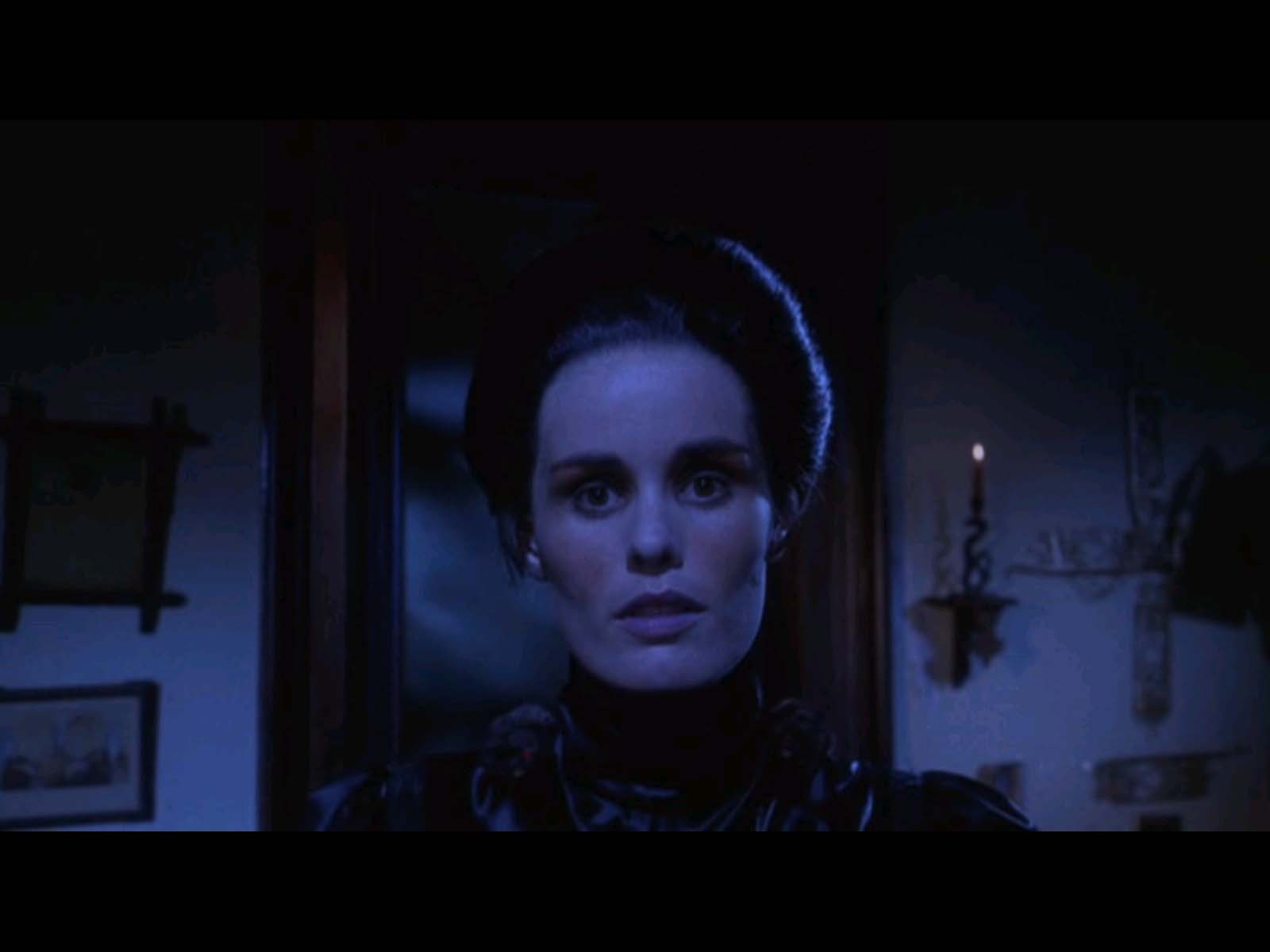“I don’t want to revenge myself on you — I want to give you something.”
|

Synopsis:
A deeply religious girl (Cheryl Smith) living with a preacher (Richard Blackburn) receives a letter stating that her estranged father (William Whitton) is dying, and runs away from home to find him. Soon Lila (Smith) discovers that her father has been captured by a mysterious, pale woman named Lemora (Lesley Gilb) — and that Lemora has unusual plans for Lila herself.
|
|
Genres, Themes, Actors, and Directors:
- Coming-of-Age
- Horror
- Vampires
Review:
Widely unavailable until its recent release on DVD, this low-budget vampire flick (commonly known as Lemora: A Child’s Tale of the Supernatural) has developed a serious cult following, with fans proclaiming it one of the best of the genre. Despite an intriguing premise and a winning performance by 16-year-old Cheryl Smith, however, it’s ultimately a rather tedious, muddled affair, one which never follows through on its potential. The essential problem lies in the fact that writer/director Richard Blackburn is less concerned with developing a cohesive storyline than with evoking atmosphere — thus, his archetypal tale of innocence lost peters out by the end of the film, ultimately leaving little impact. With that said, Lemora is beloved by enough followers to be considered must-see viewing for any serious film fanatic.
Redeeming Qualities and Moments:
- Cheryl “Rainbeaux” Smith as Lila Lee

- Creepy Leslie Gilb as Lemora

Must See?
Yes, but only for its status as a cult favorite. Listed as a Sleeper in the back of Peary’s book.
Categories
Links:
|
2 thoughts on “Lemora, the Lady Dracula (1973)”
A must – a surprisingly effective, bona fide cult item.
It’s true that writer/director Blackburn (who would go on to co-author ‘Eating Raoul’!) seemed more enamored of atmosphere than story – still, story is very much there; in fact, it becomes more intriguing by the film’s inventive final section (which is aided by the editing that has played ‘What’s real?’ tricks on the audience).
As Lemora, Leslie Gilb (who apparently never acted again) turns in a very Sigourney Weaver performance. Though an amateur, she appears very aware that she has to deliver the goods in this Grimm Brothers-esque tale. (And does she ever blink once? Those eyes!)
I love when she says to Smith: “It has to happen, Lila. Wouldn’t you rather I did it out of love than have one of those ‘wood-things’ do it out of their own animal hungers? …Do you want to degenerate into a lower form?” That’s the film’s spine-line; it holds a unique vampire lore twist: victims who were already monstrous in life become even more monstrous extensions of their original natures. As Gilb says, “I don’t do ANYthing. I only show people who they are.” (There’s an added touch along these lines when Smith’s ‘changed’ father appears to come to her rescue: Does he want to save her…or save her for himself?)
Faves:
– overall terrific use of what was likely a low budget
– the bus ride early on!
– the portraits of children on the wall, telling Smith to run for her life
– the constant, gothic use of the color blue
– Dan Neufeld’s score, which becomes more effective as it goes
The film’s tone, design – not to mention Cheryl Smith herself (whose real life became a sad tale of woe) – could easily have influenced (King and) De Palma’s ‘Carrie’
⭐️⭐️⭐️ out of ⭐️⭐️⭐️⭐️⭐️
A decent little cult item, but it’s a trifle stilted and not must see. Too minor and with no historical significance. Still, worth a look for horror buffs.